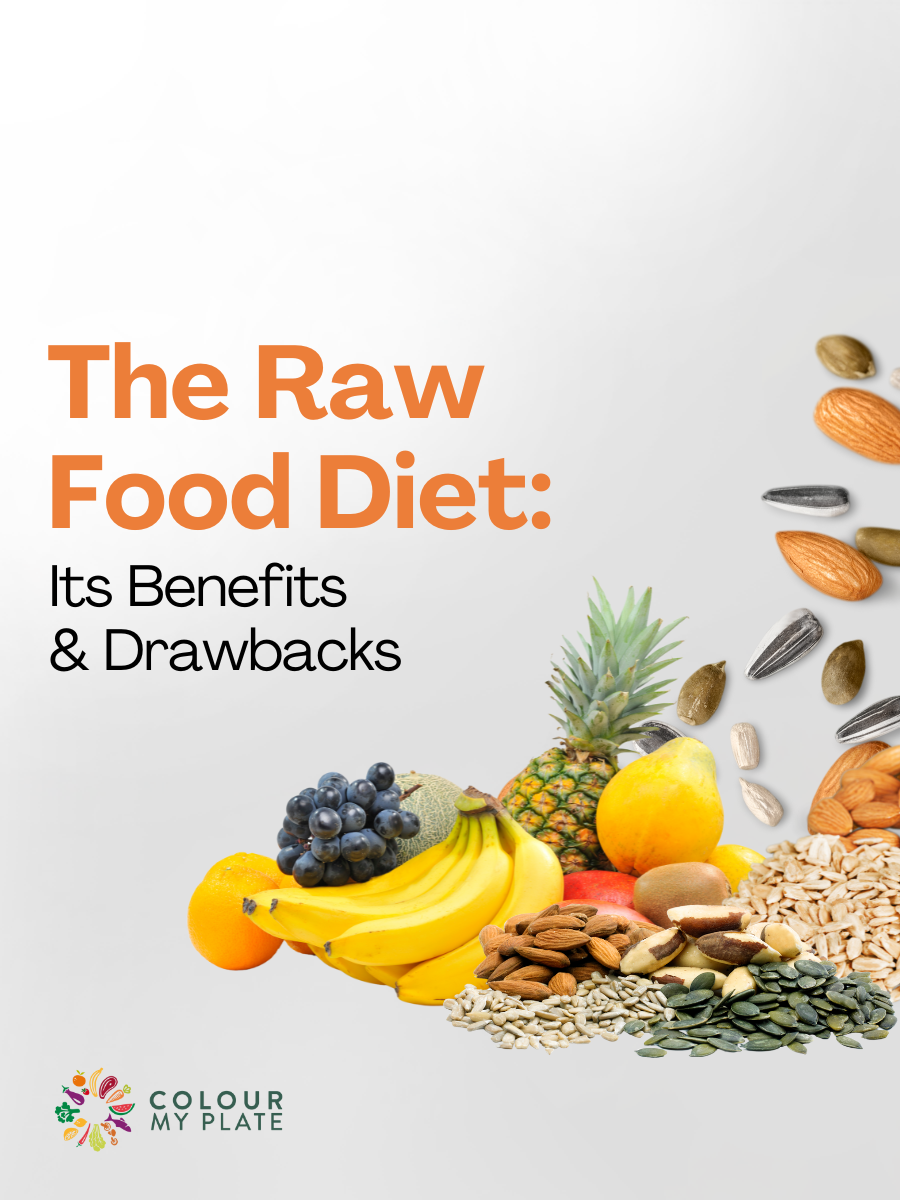
![]() 5 Mar 2025
5 Mar 2025
The raw food diet has earned attention in recent years, with many health enthusiasts advocating for its benefits. The premise of the diet is simple: consume foods that are unprocessed and have not been heated above 118°F (48°C). Raw food advocates believe that this preserves the natural enzymes and nutrients in foods, offering health benefits such as improved digestion and increased energy. But is the raw food diet truly as beneficial as it seems? Let’s break down the pros and cons from a nutritional and health perspective.
The idea of eating raw food is not a modern invention. In fact, the concept dates back to the 19th century, when the idea that raw foods are superior to cooked ones started to become widespread. However, it wasn’t until the early 2000s that the raw food diet became mainstream. Advocates claim that eating raw foods provides numerous health benefits, including detoxification, weight loss, and increased vitality. But does the science back up these claims?
One of the key advantages of the raw food diet is its emphasis on whole, plant-based foods. Studies have shown that diets rich in fruits, vegetables, nuts, and seeds are associated with a reduced risk of chronic diseases, including heart disease and certain types of cancer. Raw foods are nutrient-dense and packed with antioxidants, which help combat oxidative stress in the body.
Additionally, raw food diets are typically high in fiber, which supports digestive health and can aid in weight management. Research suggests that fiber-rich diets can lower the risk of digestive disorders, reduce cholesterol, and stabilize blood sugar levels. Raw food enthusiasts also point to the preservation of enzymes, which are believed to aid digestion and help the body absorb nutrients more efficiently.
Despite the potential benefits, there are notable drawbacks to the raw food diet. One of the biggest challenges is nutrient deficiency. While raw foods are rich in vitamins and minerals, certain nutrients, such as vitamin B12, iron, and protein, are harder to obtain in adequate amounts from plant-based raw foods. According to the Academy of Nutrition and Dietetics, vitamin B12, which is primarily found in animal products, can be particularly challenging for raw food eaters.
Moreover, some raw foods can be difficult to digest, and cooking certain foods can increase the bioavailability of essential nutrients. For example, cooking tomatoes increases the availability of lycopene, an antioxidant that supports heart health. Certain vegetables, like beans and legumes, contain compounds that can cause digestive discomfort unless properly cooked.
The raw food diet offers numerous health benefits, including nutrient-dense foods, weight management, and digestive support. However, it also presents challenges, particularly in meeting all your nutritional needs and ensuring long-term sustainability. It is crucial to approach the raw food diet carefully, possibly with the guidance of a healthcare professional or nutritionist, to ensure you’re getting a balanced diet. Incorporating a variety of raw and cooked foods may be a more practical approach for those seeking the benefits of both.

We noticed you haven't completed your delivery details.

Your message is sent